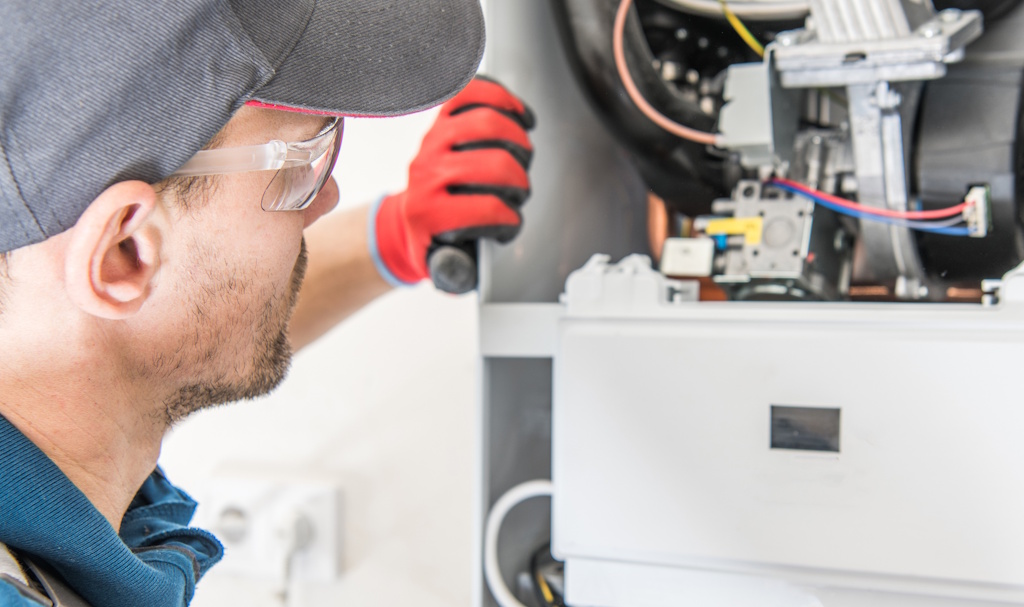Weigh Your Options Like a Pro So You Can Make an Informed Decision
As winter approaches, your furnace becomes one of the most important systems in your home. A reliable furnace keeps your family warm, safe, and comfortable when temperatures drop.
But what happens when your furnace starts showing signs of trouble?
Do you call for furnace repair service, or is it time to invest in a full replacement?
This is a common dilemma for homeowners. On one hand, repairing your furnace is probably the most cost-effective option. On the other hand, replacing an older or inefficient system could save you money in the long run. The right choice depends on your furnace’s age, condition, and the cost of repairs compared to replacement.
Below, we’ll break down the pros and cons of both furnace repair and furnace replacement so you can make an informed decision that best aligns with your goals and budget.
The Pros and Cons of Furnace Repair
When your furnace stops working properly, the first instinct is often to call a furnace repair company. In many cases, this is the right move. Repairs will promptly get your system back up and running without the higher upfront cost of replacement.
What Furnace Repairs Typically Consist Of
A furnace repair service usually involves diagnosing and fixing specific issues that prevent your system from working efficiently. Common repairs include:
- Replacing a dirty or clogged air filter.
- Fixing a malfunctioning thermostat.
- Repairing or replacing a blower motor.
- Addressing ignition or pilot light problems.
- Cleaning burners or heat exchangers.
- Repairing electrical connections or wiring issues.
These repairs can often be completed in a single visit, restoring heat to your home quickly.
Pros of Furnace Repair
- Lower upfront cost: Repairs are usually less expensive than replacing the entire system.
- Quick turnaround: A furnace repair company can often restore heat the same day.
- Extends system life: Timely repairs can add years to the life of your furnace.
- Convenience: If your furnace is relatively new, repairs are often the most practical solution.
Cons of Furnace Repair
- Recurring costs: If your furnace is older, you may find yourself calling for furnace repair service more often.
- Limited efficiency gains: Repairs fix problems but don’t improve overall energy efficiency.
- Short-term solution: Repairs may only buy time if your furnace is nearing the end of its lifespan.
- Unexpected breakdowns: Even after repairs, older systems are more likely to fail again.
When Furnace Repair Makes Sense
- Your furnace is less than 10–12 years old.
- The repair cost is relatively low compared to replacement.
- Your system has been well-maintained and is otherwise in good condition.
- You need a fast, affordable solution to restore heat.
- If these factors apply, scheduling furnace repair close to you is often the best choice.
The Pros and Cons of Furnace Replacement
Sometimes, repairing your furnace isn’t the most cost-effective option. If your system is old, inefficient, or requires frequent repairs, replacement may be the smarter long-term investment.
What Furnace Replacement Typically Consists Of
A furnace replacement involves removing your old system and installing a new, energy-efficient model. This process includes:
- Assessing your home’s heating needs.
- Selecting the right furnace size and model.
- Removing the old unit safely.
- Installing the new furnace, ductwork adjustments if needed.
- Testing the system for efficiency and safety.
While replacement requires a higher upfront cost, it provides long-term benefits that repairs can’t match.
Pros of Furnace Replacement
- Improved efficiency: New furnaces are designed to use less energy, lowering monthly bills.
- Reliability: A new system is less likely to break down, giving you peace of mind.
- Better comfort: Modern furnaces provide more consistent heating throughout your home.
- Warranty coverage: New units come with warranties that protect against costly repairs.
- Increased home value: A new furnace can be a selling point if you plan to move.
Cons of Furnace Replacement
- Higher upfront cost: Replacing a furnace is a larger investment than repair.
- Installation time: Replacement takes longer than a typical repair visit.
- Adjustment period: You may need time to get used to the new system’s operation.
When Furnace Replacement Makes Sense
- Your furnace is 15–20 years old or older.
- You’ve had multiple repairs in recent years.
- Your energy bills are rising despite regular maintenance.
- The cost of repair is more than one-third the cost of replacement.
- You want to improve efficiency and comfort for the long term.
In these cases, replacement is often the smarter financial decision.
Making the Right Choice for Your Home
Deciding between furnace repair and replacement comes down to balancing short-term costs with long-term value. If your furnace is relatively new and the repair is minor, calling a furnace repair company for service makes sense. But if your system is older, inefficient, or breaking down frequently, replacement may save you money and stress in the long run.
The best way to know for sure is to schedule an inspection with a trusted professional. A qualified technician can evaluate your furnace, explain your options, and help you decide whether furnace repair service or replacement is the right move this winter.
Call Fahnestock today at (316) 943-4328 to book your appointment with a NATE-certified HVAC technician.



